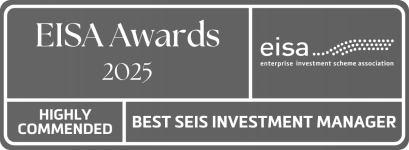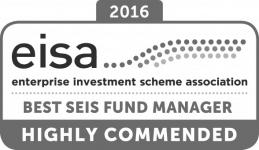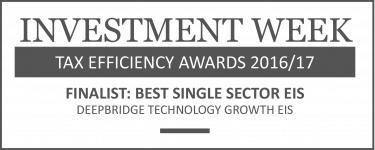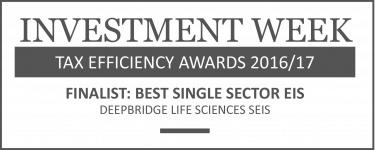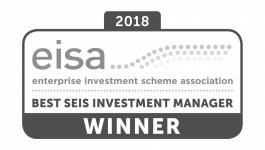Deepbridge has been providing funding to Manchester-based Zilico Limited since 2016. We recently spoke with Zilico’s CEO, Sameer Kothari, to find out more about the company and the man at the helm.
Hi Sameer, great to see you. Could you provide our readers with a brief summary of your background?
I have over twenty years of experience within a commercial setting; including mergers and acquisitions, corporate strategy, business development and HR. My last fifteen years have been within the life sciences industry. Prior to joining Zilico, I ran another life sciences business which was venture capital backed. We had two rounds of funding, scaled up our manufacturing, launched our first product and then we were acquired by a large American Healthcare player. I am particularly proud that all nine products from this company that were in the development pipeline are now on the market, which is great to see.
So, how did Zilico begin?
Still today, many diseases are visually diagnosed. For example, for oral disease, patients will see a dentist when they have red or white lesions. However, it is extremely challenging for the dentist to tell whether the lesion is sinister or merely a normal ulcer that may self-resolve. Similarly, for cervical disease, clinicians will apply acetic acid to differentiate aceto white areas and then make a judgement on whether they think these lesions are precancerous or cancer. Visualization introduces a high level of subjectivity which becomes more challenging for clinicians especially when there are more subtle changes as seen in the early onset of disease. It was a professor at the University of Sheffield that came up with the idea of using the electrical properties of cells and tissue, which led to the genesis of Zilico. Essentially what Zilico’s bio-electric technology does is diagnose diseases as it progresses from normal to early-stage pre-cancer to later stage pre-cancer (and cancer). Our lead product is ZedScan which is a diagnostic for cervical cancer. Further products are now also in development, which utilizes the same core technology.
Could you give us an overview of where the company is up to?
We now have ten hospitals across the NHS routinely using ZedScan. These are essentially clinicians who are at the top of their game within the cervical cancer pathway. They have evaluated within a real world setting.
Not only is the efficiency of the device key but also its utility within a busy clinic where often there will be 10 patients waiting to be examined within 20-30 minute slots. It is essential for the device to work fast, efficiently and provide accuracy. We are starting to see expansion into Europe with two university hospitals in Finland, one in Helsinki and another in Oulu now using the device.
The challenge with Europe is that the screening pathway in every country is subtly different and every healthcare system is different, so we need to understand each market individually.
We have also recently received a £1M grant from SBRI (NHS) to further develop prototypes for our oral cancer diagnostic. We have already published promising proof-of-concept data for this device.
What support and infrastructure are there in the UK that means companies such as Zilico can thrive?
Specifically, for Manchester, I think it is the vision of creating clusters of life sciences researches and businesses. The powers of clusters are that you have similar people that are grouping together, and it is not about competition, it is about likeminded people coming together. And that is what Manchester has done very effectively.
Is the UK seen internationally as the home for Life Sciences innovation?
Absolutely! I think if you look at the number of academic publications per capita then we are punching well above our weight. The UK is very good at research. The NHS is considered a fabulous organisation and therefore the first question we always get is, ‘are NHS centres using ZedScan routinely?’ To be able to say yes is a real stamp of approval.
The UK is thriving in the life sciences industry and I believe the North West has really been driving that for years. It is now being recognised, as companies are now moving to the North West, and you can really feel the story coming together.
What are the key factors that have enabled you to drive your business forward?
Having good people around you; whether they are mentors, sounding boards, board members, funding partners, etc. People capital is absolutely critical for me. Listening to what each other have to say is crucial. You may disagree, but at least it means that you have gained another perspective.
The other key factor for young businesses, such as Zilico, is to have faith in what you are doing. In the medical and life sciences industry I believe we are lucky because it is evidenced and that is what really attracted me to Zilico when I first joined. The initial proof of concept was published in the Lancet, a highly respected peer review journal. Growing a business is challenging and you need the motivation that comes from knowing what you are doing which can make a real difference. It is the strength of our proposition that is the reason we are still growing.
In terms of the people, how challenging is it to recruit the right people?
As a business grows it is essential to bring the right people with the right experience for the various roles. The life sciences community and the cluster of the North West has helped Zilico with our recruitment, and we believe we have been quite fortunate. We found recruiting reasonably straightforward around the North West and I believe it’s because we have got the regional skillset supported by academia, the NHS industry.
And finally, what excites you about the life sciences world?
It is about making a difference. Our mission for ZedScan is we want it to be part of the legacy of the eradication for cervical cancer, and we can see we are making inroads towards this.
- February 2026 (1)
- January 2026 (3)
- December 2025 (2)
- November 2025 (3)
- October 2025 (1)
- August 2025 (2)
- June 2025 (2)
- May 2025 (1)
- March 2025 (1)
- February 2025 (1)
- January 2025 (1)
- December 2024 (1)
- November 2024 (1)
- October 2024 (4)
- September 2024 (4)
- August 2024 (4)
- July 2024 (1)
- June 2024 (3)


